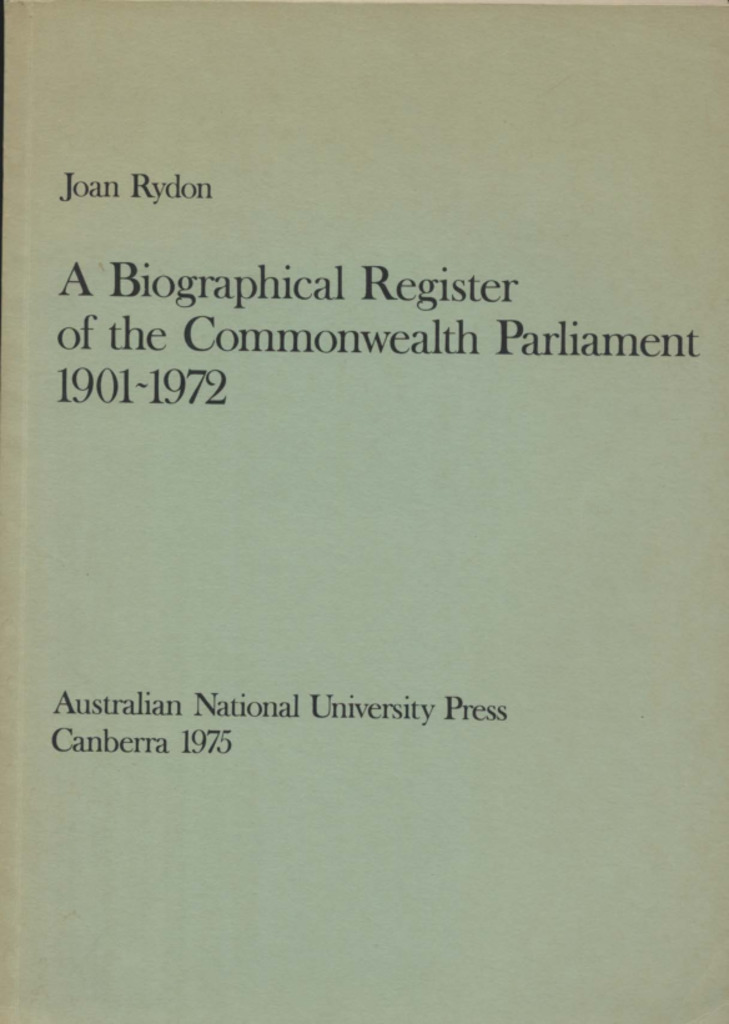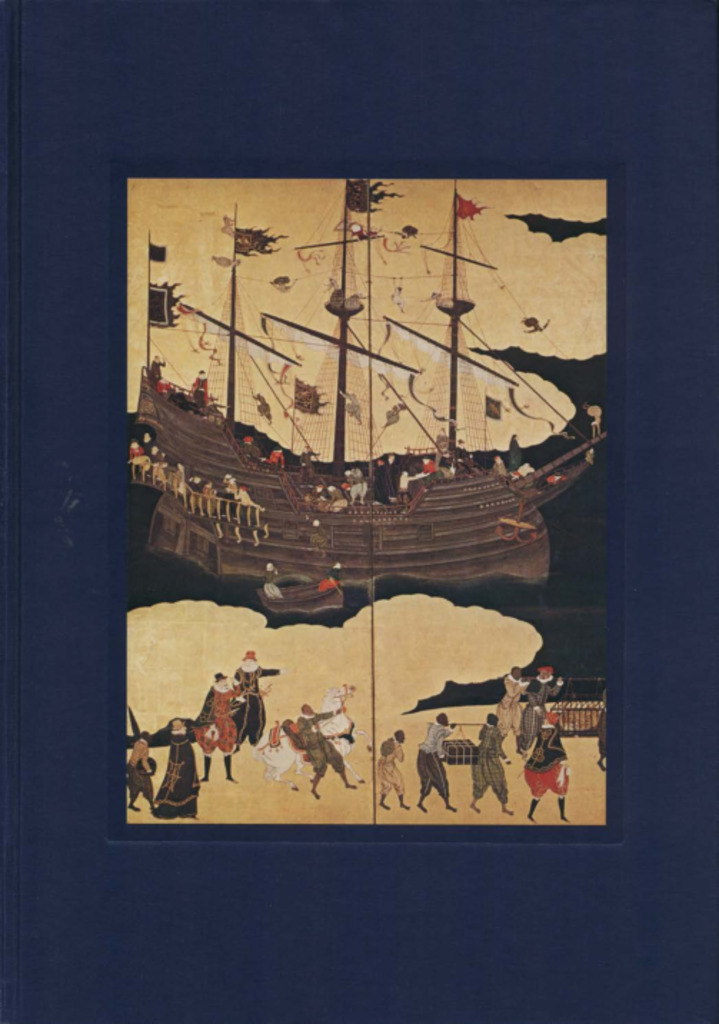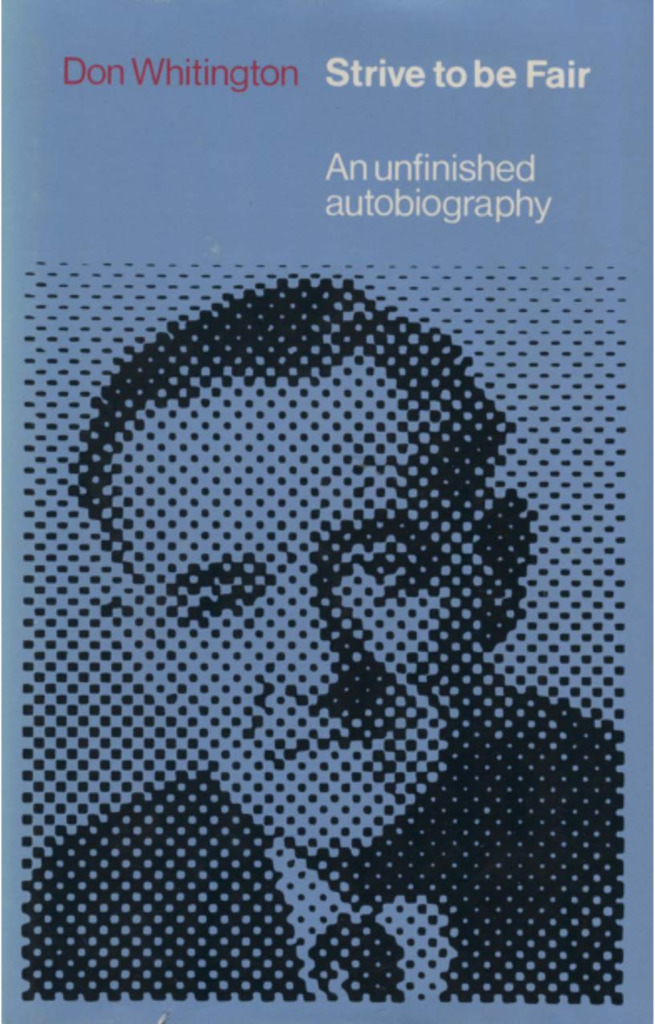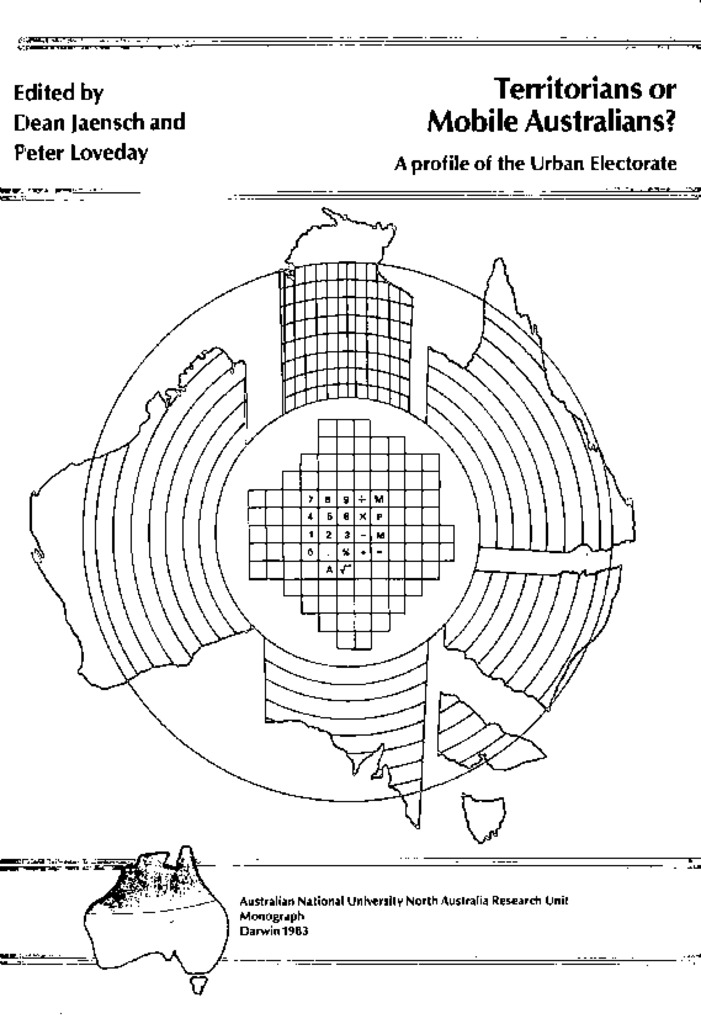Textbooks
Browse or search textbooks or find out more about the publications' authors. Download the ebook for free or buy a print-on-demand copy.
Displaying results 2251 to 2260 of 2630.

A biographical register of the Commonwealth Parliament, 1901-1972 »
Publication date: 2025
Published Press Archives http://press.anu.edu.au/node/3179 1885_115126.jpg ANU Press A biographical register of the Commonwealth Parliament, 1901-1972 Not available Archive Scholarly Information Services Rydon, Joan

The Pacific since Magellan »
Publication date: 2025
Published Press Archives http://press.anu.edu.au/node/3229 1885_115092.jpg ANU Press The Pacific since Magellan Not available Archive Scholarly Information Services Spate, O. H. K.

Strive to be fair: an unfinished autobiography »
Publication date: 2025
In his unfinished autobiography Don Whitington looks back wryly and unsentimentally on his family, his youth, and his profession. Born in Victoria of incompatible parents, who separated, he grew up in some hardship, in Tasmania. Poverty - and lack of application - cut his education short and he qualified as a woolclasser in time to lose his job in the Depression. He worked then asa jackaroo, travelling extensively in outback Australia - and finally, with {u00A3}5 in his pocket, he decided to become a journalist, thus unwittingly following in the footsteps of three generations of Whitingtons. The story of his youth is told with a lively humour that laughs at himself and laughs with others. Whitington brought to his profession a sense of justice and compassion, a keen sense of humour and an eye for the ridiculous. One of the longest serving members of the Canberra Press Gallery, he met and mixed with people from all walks of life, with politicians and journalists of all persuasions and abilities. His comments on some of the events and personalities of his times are candid, and pointed. This book is a lively, racy, informed and enjoyable story of a man who graced his profession.

Territorians or mobile Australians? a profile of the urban electorate »
Publication date: 2025
At the end of the first world war the Northern Territory contained less than 4,000 whites and a larger, but uncounted, population of Aborigines. The non-Aboriginal population remained small throughout the 1920s and 1930s, and at the time of the 1947 Census it had not quite reached 11,000. Rapid growth came in the 1960s, and vas marked by successive Censuses: 44,500 in 1961 (Aboriginals were counted for the first time), 56,500 in 1966, 85,700 in 1971, 98,200 in 1976, and 122,800 in 1981. If this steady growth continues, the Territory's population will have begun to match that of the slowly-qrowing Tasmania some time in the middle of the coming century. Long before then it will have become a considerable force in national politics. For the Territory is politically distinctive. One in every four Territorians is an Aborigine, a proportion vastly greater than in any Australian State. only a small proportion of the white population was born in the Territory, and most of its immigrants are very recent indeed. The Territory's citizens have political concerns which the citizens of the States were last preoccupied with a century ago: the building of railways and of roads, isolation, the lack of educational facilities for their children, the provision of water-supplies, and the other imperatives of a frontier society in an often harsh environment. Such a society is worth studying tor its own sake. But in addition it provides a fascinating contrast with more settled societies, which have been the source of most of the 'findings' of the social sciences. A rapidly growing society made up of a diversity of immigrants can offer its citizens few of the community structures and support systems that abound in older, established societies. If a person's political stance comes to some extent from his social milieu, what happens when people leave these milieux and go to a town where no political tradition of any consequence exists and where colleagues and neighbours have made similar departures? How much of anyone's political outlook is portable, how much relates to a particular environment? The authors of this well-designed study show that much is indeed portable. The Territory's party system is clearly a member of the family of Australian party systems, with the ALP facing a fusion of the Liberal and National Country Parties, here labelled the Country Liberal Party. And party allegiances formed elsewhere can be transferred to Territory politics with a minimum of refurbishing. But - and it is an important saver - there is no inevitability about the transfer. The smaller size of the constituencies, the intimacy of life in what are small towns, the practical roads-and-bridges focus of much politicking, the lack of a powerful union movement, the high level of government employment - all these factors operate to subdue the socio- economic ambience in which Australian political life customarily takes place. New arrivals are able either to reconsider their politics or to operate politically in different ways at the Federal level and at the Territory level. To study these processes in any detail requires the chief instrument of the modern social scientist, the sample survey, as well as the patience and dedication necessary if survey research techniques are to be used at all. The Northern Territory survey that is at the heart of this book was designed both to bring Territorians under scrutiny and also to allow comparisons with Australians in the rest of the nation. It has served its purpose well, and the authors and editors have been able to produce a book that provides new insights on the political behaviour of all Australians, not simply those adventurous citizens that have chosen to live and work in the Northern Territory.
Kate Senior »
Kate Senior is an Associate Professor of Anthropology in the School of Humanities and Social Science at the University of Newcastle. She has worked in collaboration with Daphne Daniels and the Ngukurr community for the last 20 years, with a particular emphasis on the lives and wellbeing of young people in the community. Research conducted for her Australian Research Council Future Fellowship provided the impetus for this publication.
Richard Chenhall »
Richard Chenhall is Professor of Medical Anthropology in the Melbourne School of Population and Global Health at the University of Melbourne. He has conducted research with Indigenous communities and organisations for over 20 years in the area of the social determinants of health, alcohol and other drugs, sexual health and youth wellbeing.
Victoria Burbank »
Victoria Burbank PhD, FASSA, was a professor of anthropology at the University of Western Australia between 1994 and 2014. Drawing upon her experiences in the south-eastern Arnhem Land community of Numbulwar, she has published three books: Aboriginal Adolescence, Fighting Women and An Ethnography of Stress, along with a number of papers and book chapters. Now ‘retired’ she continues to draw on her expertise in psychological anthropology via public presentations, postgraduate supervision, reviewing and editing.
Kenneth Locke Hale »
Kenneth Locke Hale (1934–2001), who preferred to be called Ken, carried out fieldwork and published on a very large number of languages, not just in Australia but internationally. He was a supremely gifted polyglot and also an academic linguist of distinction, who taught in the Linguistics Department of the Massachusetts Institute of Technology from 1967 to 1999. In 1960 Hale carried out comparative work on a large number of languages of Cape York Peninsula, Queensland. On the basis of that work, he wrote expert submissions for the Wik native title claim in 1997. The claim’s historic success was due in no small part to Hale’s contribution.
Peter Sutton »
Peter Sutton is an Affiliate Professor at the University of Adelaide and the South Australian Museum. He is an author, anthropologist and linguist who has lived and worked with Australian Aboriginal people since 1969. He is a specialist in native title anthropology, Cape York languages and Aboriginal art. He has been an author or editor of 16 books, the most recent being The Politics of Suffering (2009), Iridescence (2015, with Michael Snow) and Farmers or Hunter-gatherers? The Dark Emu Debate (2021, with Keryn Walshe). He played various roles as an anthropological researcher 1979–2021 in 87 Aboriginal land claims.
Lisa Palmer »
Lisa Palmer teaches and researches on indigenous environmental knowledge and practices at the University of Melbourne. She lives in Melbourne and regularly travels to Timor-Leste to carry out research and visit extended family. She has published widely and is the author of an ethnography on people’s complex relations with water in Timor-Leste titled Water Politics and Spiritual Ecology: Custom, Environmental Governance and Development (2015, Routledge). Working also through visual methods she has directed two films, Wild Honey: Caring for Bees in a Divided Land and Holding Tightly: Custom and Healing in Timor-Leste.



